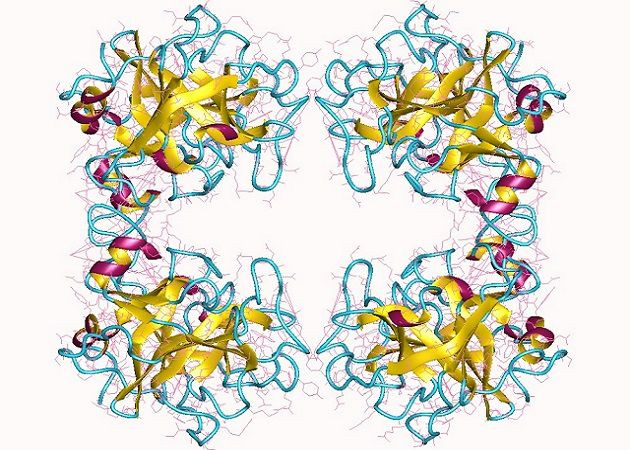The Genetic Cause Behind A Mysterious Disorder May Have Just Been Discovered

The culprit behind a mysterious cluster of chronic and painful symptoms may have just been unmasked by a team of scientists from the National Institutes of Health (NIH).
The team conducted a genetic analysis of 35 families where at least some were suspected to have the condition, characterized by dizziness, itching, stomach pain, and joint problems, among other symptoms. Earlier research showed that these families had elevated levels of tryptase, an enzyme that plays a role in regulating our immune system, in their blood. The analysis revealed these higher levels were the direct result of them having multiple copies of the gene that creates alpha tryptase. All the family members who reported symptoms had two or more copies of the gene, and those who had three copies were sicker and had higher tryptase levels than those with only two.
“This work suggests that multiple alpha tryptase gene copies might underlie health issues that affect a substantial number of people,” said Dr. Anthony S. Fauci, director of the NIH’s National Institute of Allergy and Infectious Diseases (NIAID), the division that led the study, in a statement. “Identifying one genetic cause for high tryptase opens the door for us to develop strategies for diagnosing and treating people carrying this genetic change.”
To further bolster their findings, the team next looked at the genetic data taken from 172 people who had previously participated in unrelated research. They once again found a direct link between high tryptase levels and duplicate copies of the gene, and even noticed that some but not all people with higher levels reported the same symptoms seen in the families.
“The families we originally studied may be among the more severely affected on a spectrum of disease, while some people with alpha tryptase gene duplications experience few or mild symptoms,” explained lead author Dr. Jonathan Lyons, an assistant clinical investigator in NIAID’s Laboratory of Allergic Diseases, in the statement.
Tryptase is known to play a role in certain allergies. And other diseases involving the part of the immune system it regulates — mast cells — have been documented, but many of the patients studied by the team didn't fit the criteria for these conditions. At this point, it's still unknown whether the disorder only involves mast cells or whether the overactive levels of tryptase affects various parts of the body.
With the findings now in tow, though, the team hopes at least some people whose symptoms were dismissed as psychological or otherwise unexplainable can finally be acknowledged by the medical world.
“These families had gone for years without a medical diagnosis, and many had been told that some of their symptoms were ‘all in your head,’” said senior author Dr. Joshua Milner, chief of the Genetics and Pathogenesis of Allergy Section in NIAID’s Laboratory of Allergic Diseases. The authors noted that many of the symptoms resembled irritable bowel syndrome, a finding which may further validate the latter’s existence as a genuine physiological condition.
“These results not only provide a genetic explanation for the combination of symptoms that these patients experience, but also point the way to a potential solution.” Milner added, in the statement. “If we can devise a way to block alpha tryptase, we might be able to alleviate some or all of the symptoms related to elevated tryptase levels.”
More research will need to confirm exactly how excessive tryptase production triggers these symptoms, however, and what other factors influence their severity. It’s estimated that anywhere from 4 to 6 percent of the general population may have high tryptase levels.
“Additionally, it’s important to note that many people with normal tryptase levels also suffer from these problems,” said Lyons. “We hope that our study opens the door for future work to understand the cause of their symptoms as well.”
The findings were published Monday in Nature Genetics.
Source: Lyons J, Yu X, Hughes J, et al. Elevated basal serum tryptase identifies a multisystem disorder associated with increased TPSAB1 copy number. Nature Genetics. 2016.
Published by Medicaldaily.com



























